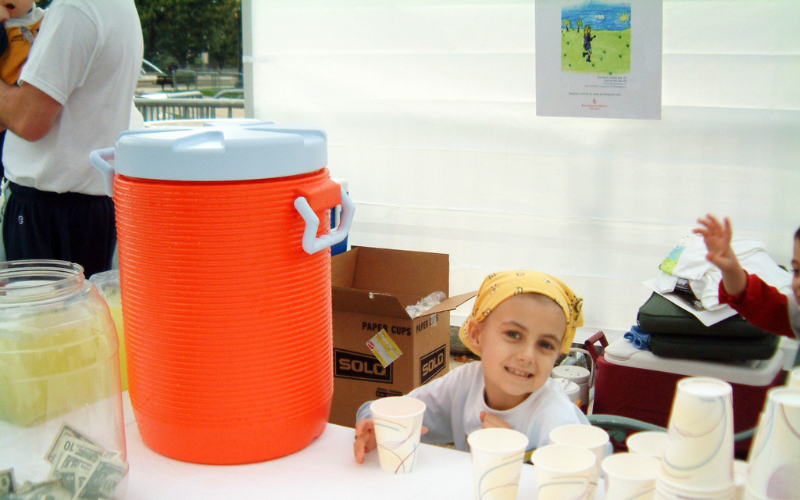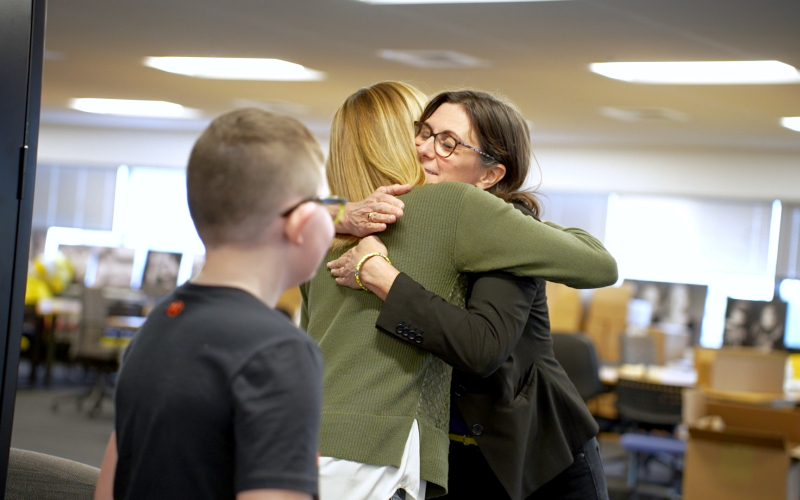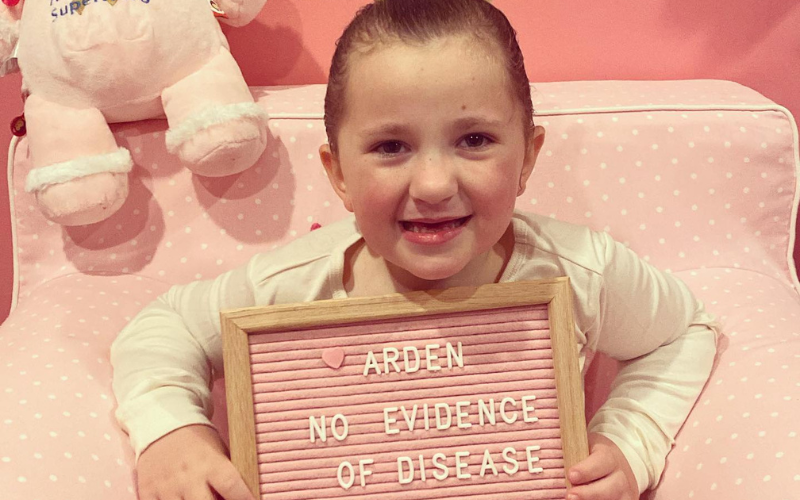By: Trish Adkins
Neuroblastoma is the most common extracranial solid tumor in children. It accounts for approximately 10% of all childhood cancer diagnoses. And while many strides have been made since 1997, the year Alex’s Lemonade Stand Foundation (ALSF) founder Alex Scott was diagnosed with neuroblastoma, children with the highest risk type of the disease continue to face difficult odds and harsh treatments.
There is still more work to be done.
Since its inception, ALSF has funded over 1,500 medical research grants at nearly 150 institutions studying all types of childhood cancer, including neuroblastoma. In 2021 the Foundation funded its first round of Crazy 8 projects, supporting multidisciplinary teams who are studying the most pressing issues in childhood cancer. One project is working to develop drugs that target MYCN, a mutated gene that drives the growth of cancer tumors in neuroblastoma and other childhood cancers. Led by Yael Mossé, MD, the team has made substantial progress in their work — and they aren’t stopping.
“We are now poised to deliver on the Holy Grail of pediatric cancer and that is to develop a drug that will allow for MYCN to degrade in a cancer cell and directly impact patients with MYCN-driven childhood cancers,” said Dr. Mossé.
Other incredible progress has been made in the search for cures for kids with neuroblastoma. Here are three stories of children who are alive today because of groundbreaking neuroblastoma research funded by Alex’s Lemonade Stand Foundation:
1. Arden
Arden was just 16 months old when a scan revealed she had neuroblastoma. Dr. Grossmann, a pediatric oncology fellow, was guiding the family through the early days of treatment. Megan, Arden's mom, made an agreement with Dr. Grossman, that, regardless of the challenges Arden faced, he would always emphasize the little miracles throughout Arden’s treatment. One little miracle, which turned out to be a big miracle, was a promising clinical trial available at Children’s Hospital of Philadelphia, where Arden was being treated. Arden was a potential match, but needed more testing to determine if the trial was right for her. Testing revealed that Arden had high-risk neuroblastoma with the anaplastic lymphoma kinase (ALK) mutation. Arden met the criteria to enroll in the trial.
And it worked. As the final portion of her treatment, which lasted more than three years, Arden completed taking a year of the trial drug, lorlatinib, in May 2023. In May 2024, Arden again celebrated “No Evidence of Disease.” Megan credits research with saving Arden’s life.
“If it weren’t for Alex, there wouldn’t be any Ardens,” said Megan.
2. Philip
Philip was 3 years old when doctors told his parents that his neuroblastoma was incurable. His parents, Wendy and Jeff, were devastated. But even in devastation, they did not give up hope — hope for more time and a miracle. That hope led them to a clinical trial for a targeted drug. Philip was a match for the trial, which used the same targeted treatment, lorlatinib, that Arden received.
For Philip, treatment on lorlatinib came with several benefits. He could take the drug in a pill format versus intravenously like his previous treatments, and the side effects were relatively manageable and mild, as compared to other traditional neuroblastoma treatments like chemotherapy and radiation. Philip was able to be a regular kid while on treatment — and now that he is off the drug, he’s able to continue growing up, playing baseball and enjoying being a fifth grader.
His parents are forever grateful to the trial that gave their son hope for a future.
“Philip wouldn’t be here,” said Wendy. “This was his last shot at helping him survive.”
3. Edie (and her mom Emily)
Edie was just 5 months old when she began experiencing stomach pain. Her parents knew something wasn’t right and after a series of tests, Edie was diagnosed with stage IV neuroblastoma. By the time she was 2 years old, Edie had been fighting neuroblastoma for over half her life and treatment wasn’t working.
Her cancer persisted. Out of options, Edie turned to a clinical trial. A blood test revealed she was harboring a specific mutation called ALK, which was driving Edie’s neuroblastoma. This finding made Edie eligible for a trial for a drug called crizotinib. The drug was delivered in a pill form, as opposed to the IV-delivered chemotherapy that Edie previously had to endure. Also unlike chemotherapy: the side effects of crizotinib were minimal and often disappeared within days of starting the protocol.
The trial worked. By December 2011, Edie was cancer-free. Later, her mother, Emily, would be diagnosed with same type of ALK-driven familial neuroblastoma and find her cure in a therapy that included crizotinib. Edie turned 15 years old this June, celebrating more than 10 years of survivorship.
December 5 is International Neuroblastoma Awareness Day
Shortly before her first birthday, ALSF Founder, Alex Scott, was diagnosed with neuroblastoma, a type of childhood cancer. For her entire eight years of life, she did not let her diagnosis stop her from being a determined, courageous, confident and inspiring child with big dreams and big accomplishments for helping other kids with cancer.
With her grassroots lemonade stands, Alex created a movement that allows us to all work together to cure kids with cancer, a movement that has helped other kids have the chance to live out their dreams.
We keep fighting in Alex's honor.





